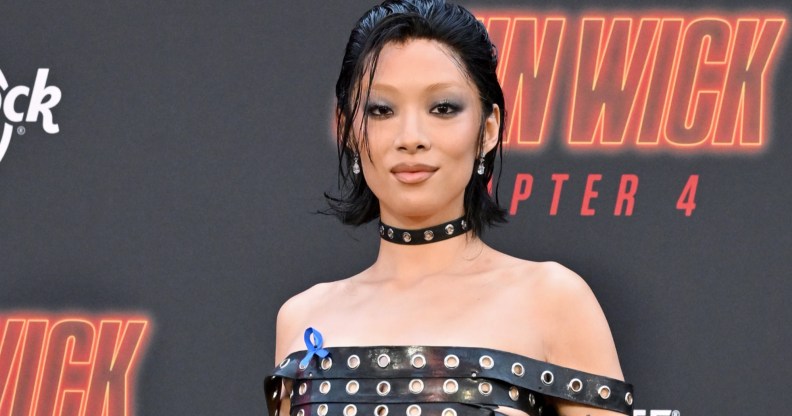Rina Sawayama says she was groomed by a teacher at 17: ‘An abuse of power’

Rina Sawayama says she was groomed by a teacher at 17. (Getty)
Queer pop star and John Wick: Chapter 4 actress Rina Sawayama has spoken out for the first time about her experience of being groomed as a teenager.
The British-Japanese musician, now 33, shared the trauma behind her second studio album, Hold the Girl, released last year, during an interview on the BBC Three and World Service programme In Conversation.
When asked about the inspiration behind the album, Sawayama shared a revelation she had during “sex and relationship” therapy that helped her realise she “was actually groomed” by a teacher at the age of 17.
“Why that realisation happened in my thirties was because I was finally his age,” she told BBC gender and identity correspondent Megha Mohan.
“There’s a secondary school [near where I live] and to think that it could ever be acceptable for me to look at a 17 year old and say: ‘Oh yeah, that’s fine’, and try to go for them, I remember distinctly how uncomfortable that made me, but I didn’t put two and two together.

“It was through this very intense form of therapy, which I feel so lucky to be able to have access to, that I was able to come to terms with that, and it completely broke my whole world apart,” the pansexual artist continued.
After news of the relationship spread around her school, the situation only grew worse.
“I was so badly slut-shamed that I developed shame around my sexuality, and completely lost my sense of self. I detached from my skin, I don’t know how to describe it. I felt so afraid of things and had anxiety attacks.”
These experiences led to the single “Your Age”, which includes the lyrics ‘You crossed the line but multiplied the lies/I survived a social suicide/Decisions were not mine/You closed me off, a jail personified’.
“You have no agency in that situation,” she said. “To me, 17 is a child. You’re in school, you have no autonomy most of the time, and especially if you’re in a school setting. If a school teacher is coming on to you, that’s an abuse of power. I didn’t realise that until I was his age.”
Although writing the album was “one of the hardest things” Sawayama has ever had to do, she finds solace in the fact that her songs have made a deep impact on certain sections of her audiences.
“It makes me so happy when I see especially women or femmes connecting to it, because I haven’t talked about this in specifics.
“I’ve just said it’s about a period in my life when I was younger. But I know the truth, and when I look out to the audience and see femmes or women connecting to it, I’m like: maybe you know what I’m talking about, maybe you’re feeling it right now.”
She hopes that not all her future music will be “autobiographical” because “my story is not the most important story to tell”, she says.
“I would love a day where I can write a song that’s just about love or sex. I’m getting there.”
How did this story make you feel?

